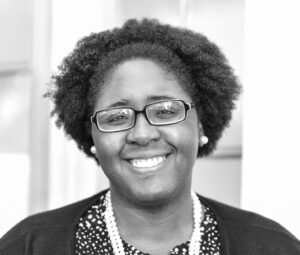
Listening as Weaponized Incompetence
What Listening is Not
It will be obvious to some and painfully invisible to others, but it will lurk in quiet corners of the classroom. And it will grow and stretch and plant roots in many imaginations as being OK. Only some in the classroom will feel the discomfort and stagnation of its growing presence. Only some will notice this phenomenon hardening and forming a new wall that the privileged will be able to hide behind, marking it as their limit, as the end point of their journeys.
Though teachers want growth in the classroom, I am not sure we want this type of growth; for this growth mislabels itself. It calls itself progress and progressiveness. It calls itself a sign of maturation and evolving, while what is actually unfolding is quite damaging.
Listening as a practice of anti-racism or subverting one’s privilege, especially by white students (though this applies to all students with privilege), breeds a pernicious dynamic in the classroom – one of silence and thus of nonaccountability. It unfortunately encourages concealment. Students can take up a posture of “listening” to avoid the risk of addressing problems as they happen in the classroom.
But listening is not silence.
Silence is foe. It is not allyship. Silence dressed in the discourse of listening is clever avoidance. True listening is not stagnant; she is always active. She is not perpetually quiet. She emerges and course-corrects and grows into the right stance and posture. Listening is not a means of tapping out of the difficulty of a moment in the guise of passivity; it is to commit to addressing the awkward moments in the classroom in real time. It is a covenant to deal with difficulty.
In its true form listening is quite loud.
Silence has paraded around as listening too many times in progressive classrooms – and in the process it has harmed more moments and students than it has helped.
There are No Silent Exemplars
If change requires shift and movement, it is safe to assume that correction must be voiced. The right thing to do then, requires making a sound.
Because of listening’s misinterpretation, the classroom can be a case study in how opportunities for change are missed. And these missed opportunities become cyclical.
It is all too commonplace that a Black student’s white colleague consistently says the right thing about justice, oppression, racism, sexism, queerphobia, and so forth, when the intellectual moment presents itself in class. For the minoritized/marginalized student there is hope! The possibility that this classmate “gets it” first announces itself.
But then something devastating happens. Another colleague or – if we are completely honest – sometimes the teacher, does not respond or react if something offensive, disturbing, biased, incorrect, assumptive, ignorant, or somewhat “off” is said or happens. People who are in the impacted group feel it. They feel compelled to correct the error. But they are also tired of defending themselves. They become apathetic, for they know this moment all too well. The silence is awkward; it is not productive but feels deeply regressive.
But most importantly, it hurts. And the hurt grows. And grows.
With each second that the articulate colleague or teacher allows to pass where the offense is not met with a pedagogical corrective, the wound burrows deeper, cementing itself in memory of the wounded: they will remember this the next time they have hope for those who boast the appearance of understanding in the guise of intellect.
Listening as Weaponized Incompetence
Weaponized incompetence is not only a domestic dynamic. The push for majority students to “listen” to their minoritized peers in educational spaces has cleverly become the newest iteration of weaponized incompetence.
Listening as a passive, benevolent act can do tremendous work for the moral appearance of change, transformation, and/or righteousness. The majority benefits from it while continuing to inflict harm on the minoritized persons in the learning space.
Hearing transgressions and violations against another’s humanity, history, culture, aesthetic, tongue, way of life, or knowing, and settling into silence and inaction is not true listening.
Listening must be redefined as practice oriented. It requires immediate and factual correction in and of moments where the incorrect narrative, perception, or action has been directed towards another. Listening demands activity; it means amending the error in real time no matter how challenging the moment.
But the elephant in the room of this dilemma must be addressed: it is not only white students and students with privileged identities who employ silence disguised as listening over and against minoritized students. If we are completely honest, it is mainly teachers who do it.
If teachers are serious about doing our jobs well with constructive results, we need to create and establish systems of correction and accountability within the classroom that take the pressure and responsibility off of our minoritized and marginalized students.
Are we up for the challenge?
What modes of accountability might teachers put in place at the beginning of each semester or term that ensures pedagogical challenge and expansion not only for our students, but for us?
Might we model listening as active practice instead of a weaponized excuse?
I hope we do. The future and efficacy of education depends on it.
Leave a Reply